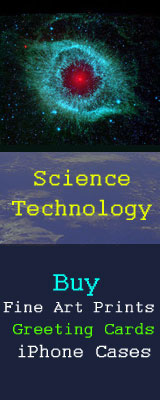.
Sergei Lvovich Sobolev
Sergei Lvovich Sobolev (Russian: Серге́й Льво́вич Со́болев; 6 October 1908 – 3 January 1989) was a Soviet mathematician, working in mathematical analysis and partial differential equations. He was born in St. Petersburg, and died in Moscow.
Work
Sobolev introduced the notions that are now fundamental for several different areas of mathematics. Sobolev spaces can be defined by some growth conditions on the Fourier transforms; they and their embedding theorems are an important subject in functional analysis. Generalized functions (later known as distributions) were first introduced by Sobolev in 1935 for weak solutions, and further developed by Laurent Schwartz. Sobolev abstracted the classical notion of differentiation so expanding the ranges of applications of the technique of Newton and Leibniz.
Life
Sobolev graduated from Leningrad University in 1929, where he was a student of Nikolai Maksimovich Günter. After graduation he worked with Vladimir Smirnov whom he considered as his second teacher. He worked in Leningrad from 1932, and at the Steklov Institute of Mathematics in Moscow from 1934. He headed the institute in evacuation to Kazan during the World War II. He was a Moscow State University professor from 1935 to 1957 and also a deputy director of the Institute for Atomic Energy 1943-57 where he participated in the A-bomb project of the USSR.
In 1956 Sobolev joined a number of prominent scientists in proposing a large-scale scientific and educational initiative for the Eastern parts of the Soviet Union, which resulted in the creation of the Siberian Division of the Academy of Sciences. He was the founder and first director of the Institute of Mathematics at Akademgorodok near Novosibirsk, which was later to bear his name, and played an important role in the establishment and development of Novosibirsk State University.
See also
* Sobolev conjugate
* Sobolev embedding theorem
* Sobolev generalized derivative
* Sobolev inequality
* Sobolev space
Bibliography
* O'Connor, John J.; Robertson, Edmund F., "Sergei Sobolev", MacTutor History of Mathematics archive, University of St Andrews, http://www-history.mcs.st-andrews.ac.uk/Biographies/Sobolev.html .
* Sergei Lvovich Sobolev., in: Russian Mathematicians in the 20th Century (Yakov Sinai, editor), pp. 381–382. World Scientific Publishing, 2003. ISBN 9789812383853
* Jean Leray. La vie et l'œuvre de Serge Sobolev. [The life and works of Sergeĭ Sobolev]. Comptes Rendus de l'Académie des Sciences. Série Générale. La Vie des Sciences, vol. 7 (1990), no. 6, pp. 467–471.
* G. V. Demidenko. A GREAT MATHEMATICIAN OF 20th CENTURY. On the occasion of the centenary from the birthdate of Sergei Lvovich Sobolev. Science in Siberia, no. 39 (2674), October 2, 2008
* M. M. Lavrent'ev, Yu. G. Reshetnyak, A. A. Borovkov, S. K. Godunov, T. I. Zelenyak and S. S. Kutateladze.Remembrances of Sergei L'vovich Sobolev. Siberian Mathematical Journal, vol. 30 (1989), no. 3, pp. 502–504
References
* Sobolev, Sergei L. (1936), "Méthode nouvelle à résoudre le problème de Cauchy pour les équations linéaires hyperboliques normales", Rec. Mat. (Matematicheskiĭ Sbornik) 1(43) (1): 39–72, Zbl 0014.05902, http://mi.mathnet.ru/eng/msb/v43/i1/p39 (in French). The paper where Sergei Sobolev introduces generalized functions, applying them to the problem of solving linear hyperbolic partial differential equations.
* Sobolev, Sergei L. (1938), "Sur un théorème d'analyse fonctionnelle", Rec. Mat. (Matematicheskiĭ Sbornik) 4(46) (3): 471–497, Zbl 0022.14803, http://mi.mathnet.ru/eng/msb/v46/i3/p471 (in Russian, with French summary). The paper where Sergei Sobolev proved his embedding theorem, introducing and using integral operators very similar to mollifiers, without naming them.
External links
* Sergei Sobolev at the Mathematics Genealogy Project
* Sobolev Institute of Mathematics
* Kutateladze S.S., Sobolev of the Euler school
Retrieved from "http://en.wikipedia.org/"
All text is available under the terms of the GNU Free Documentation License


